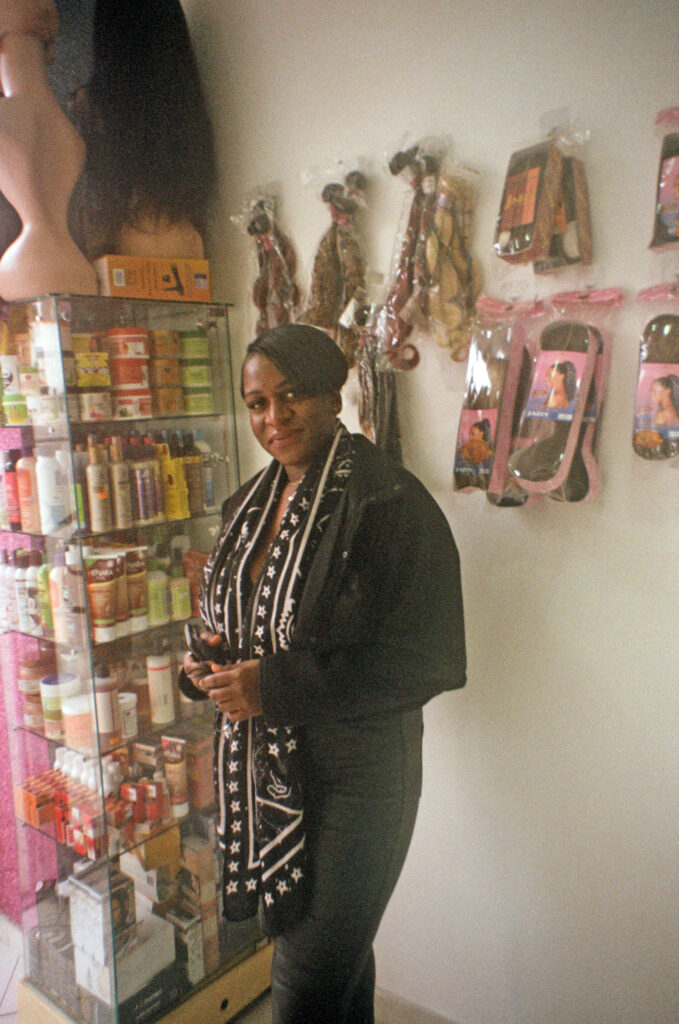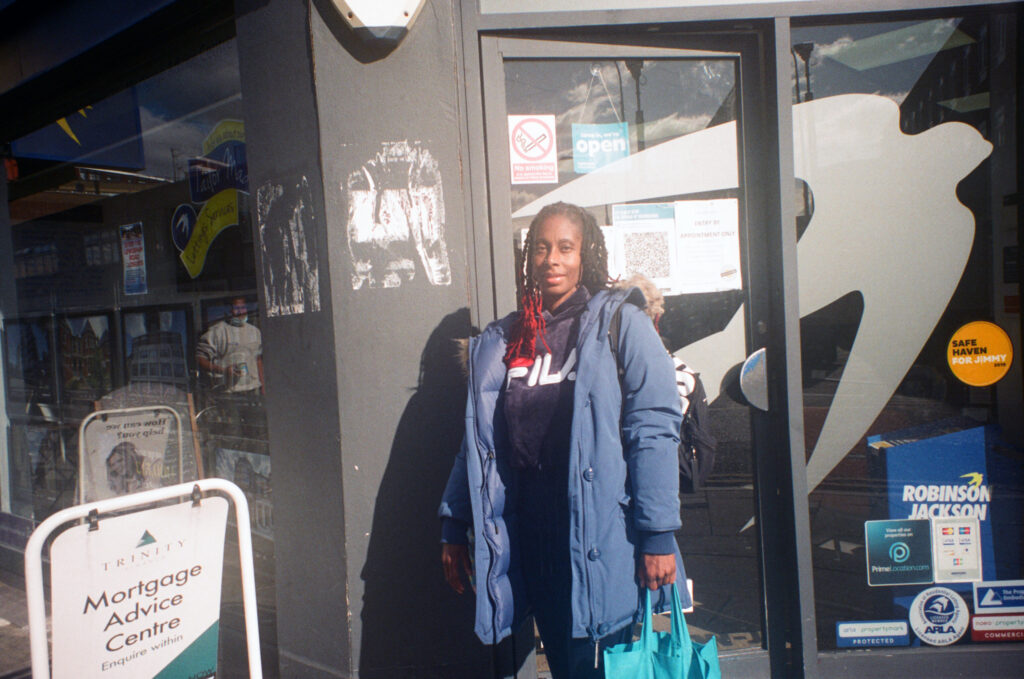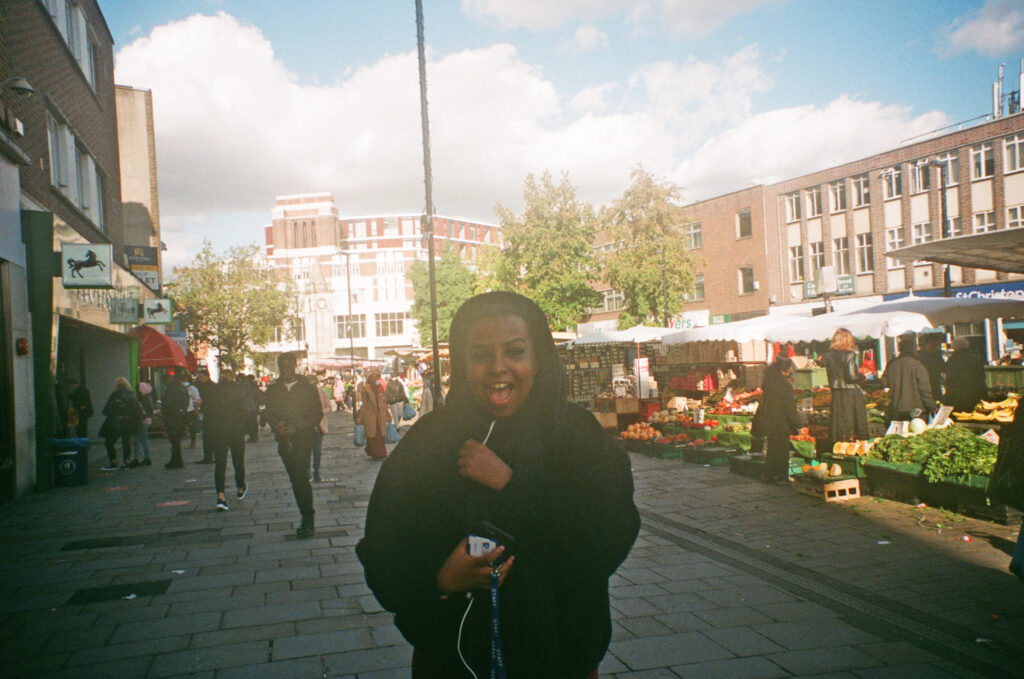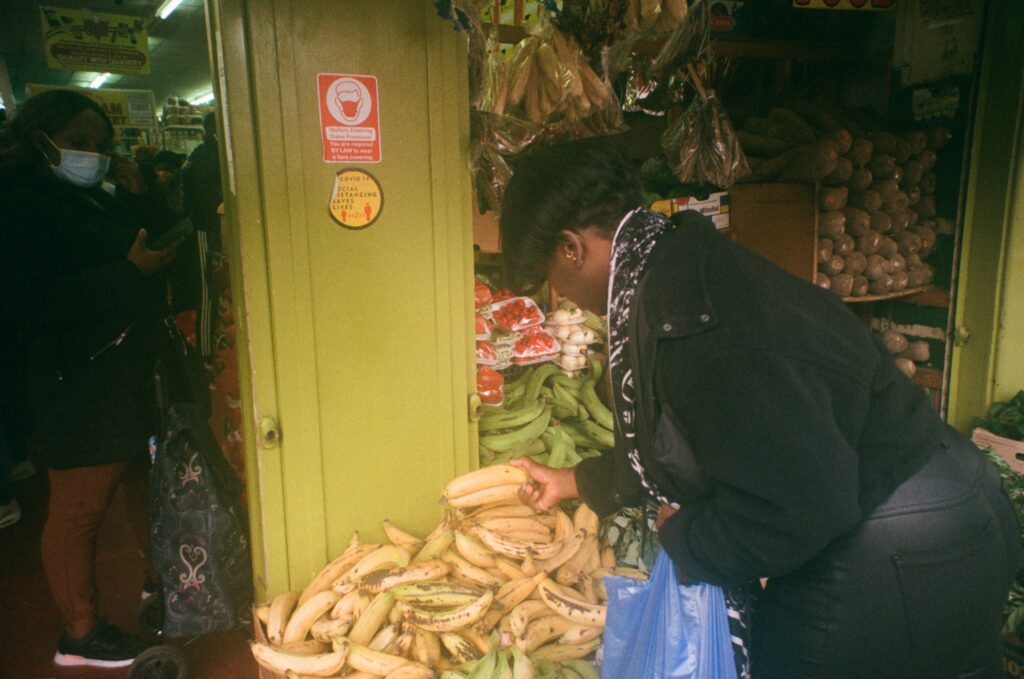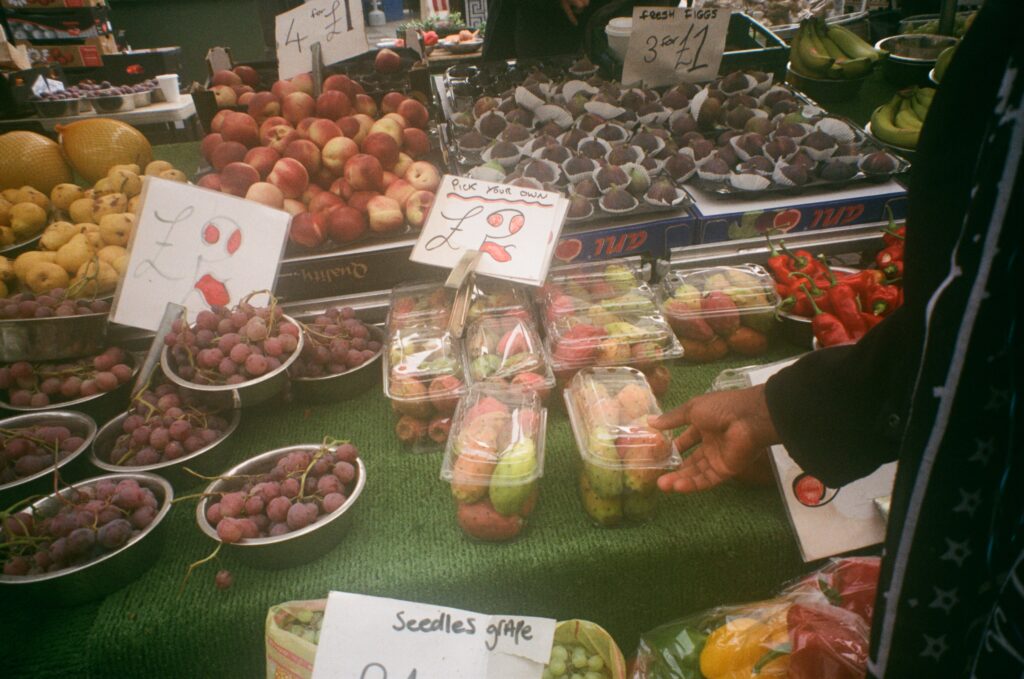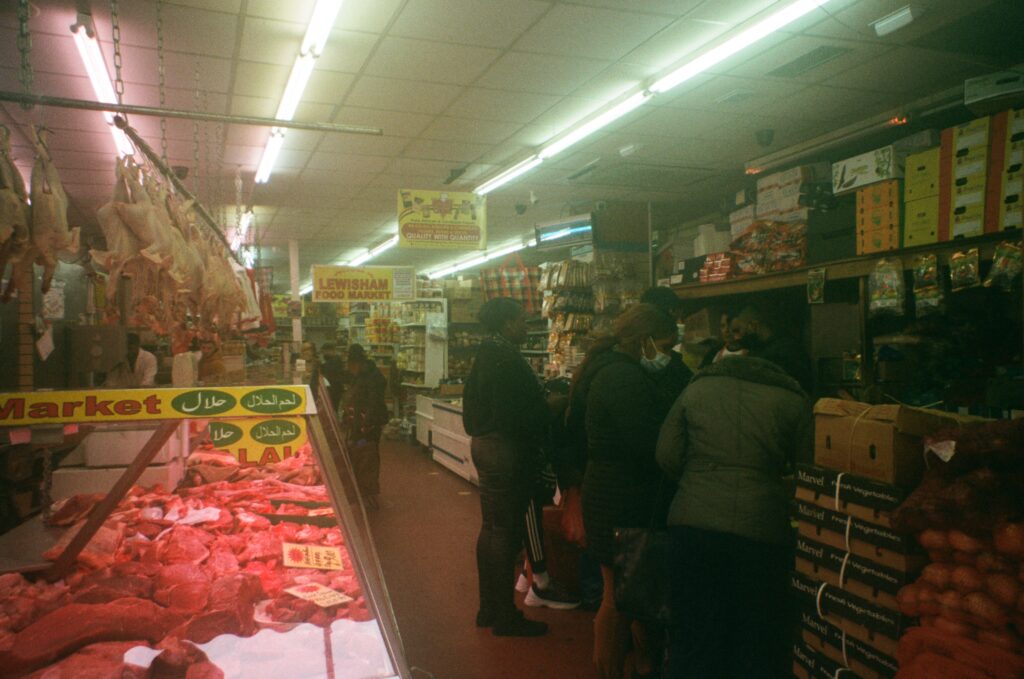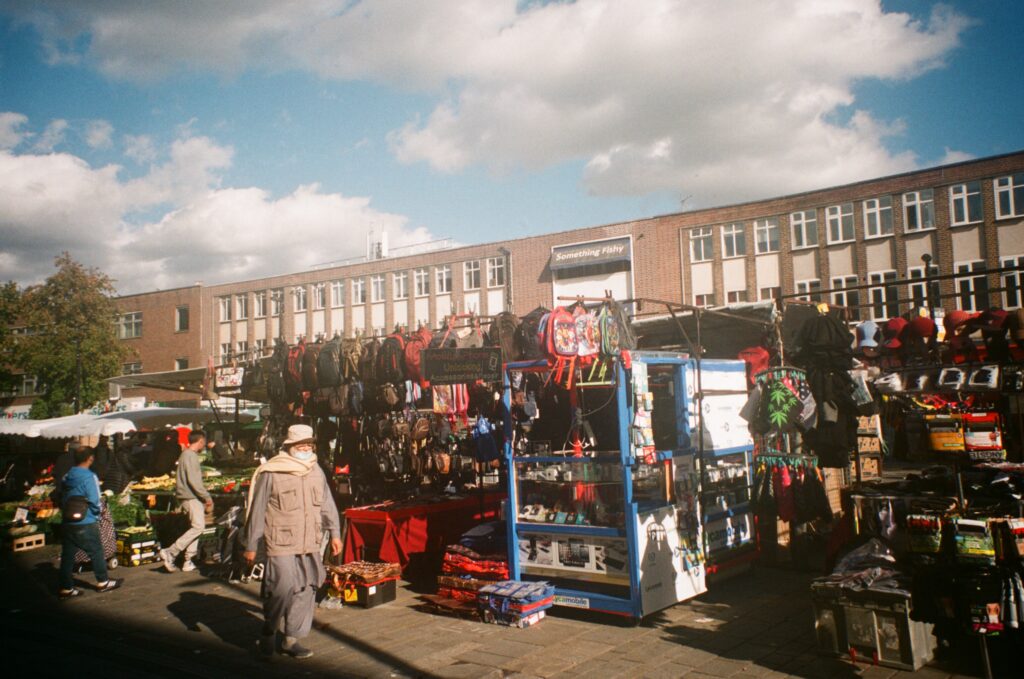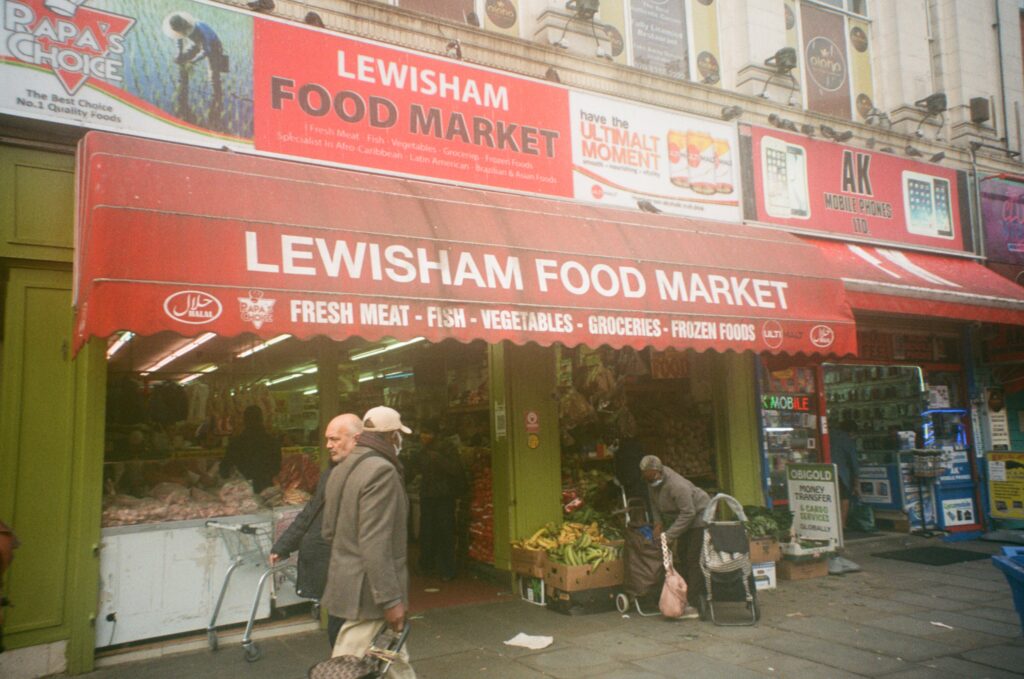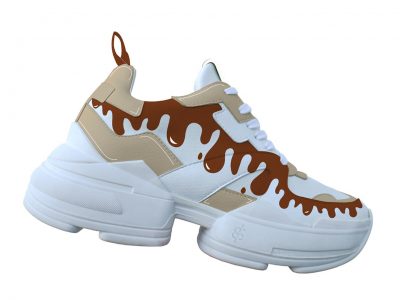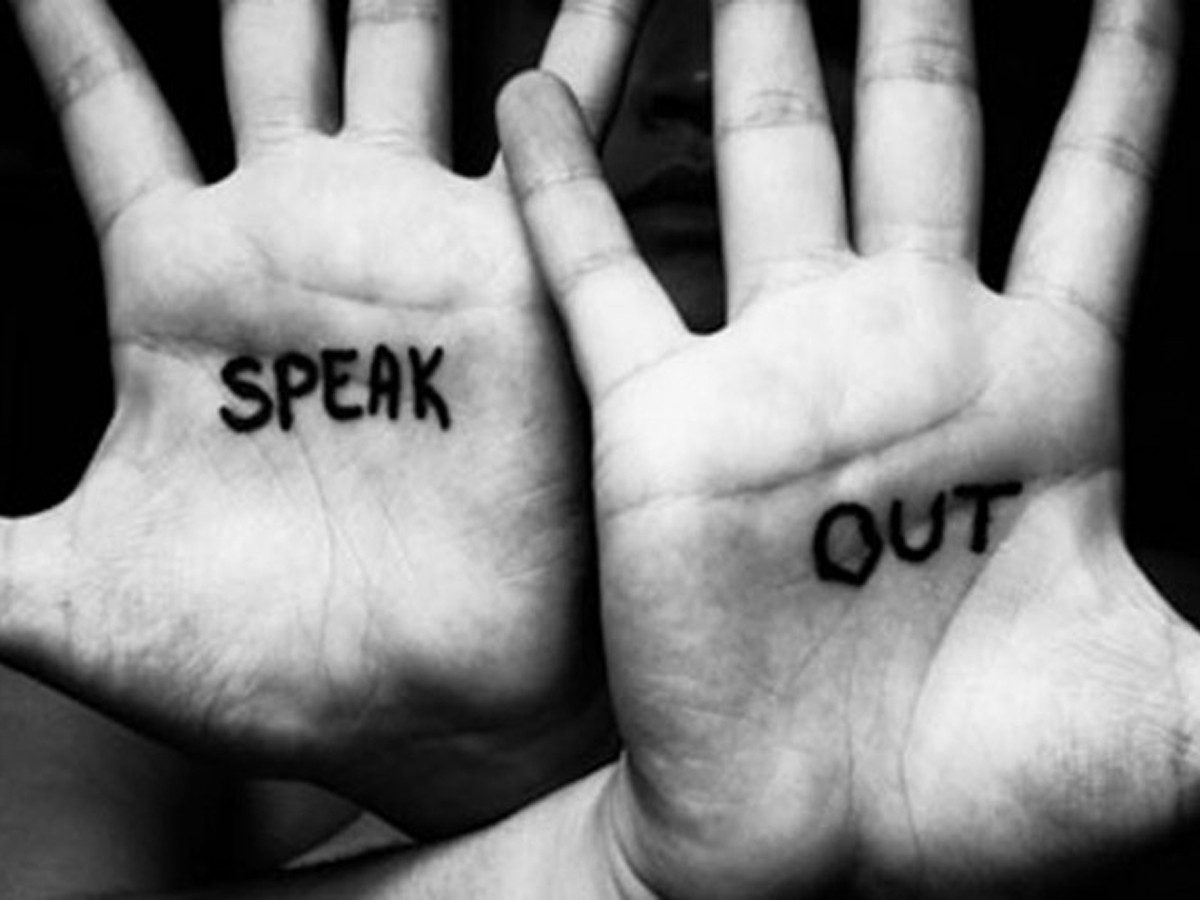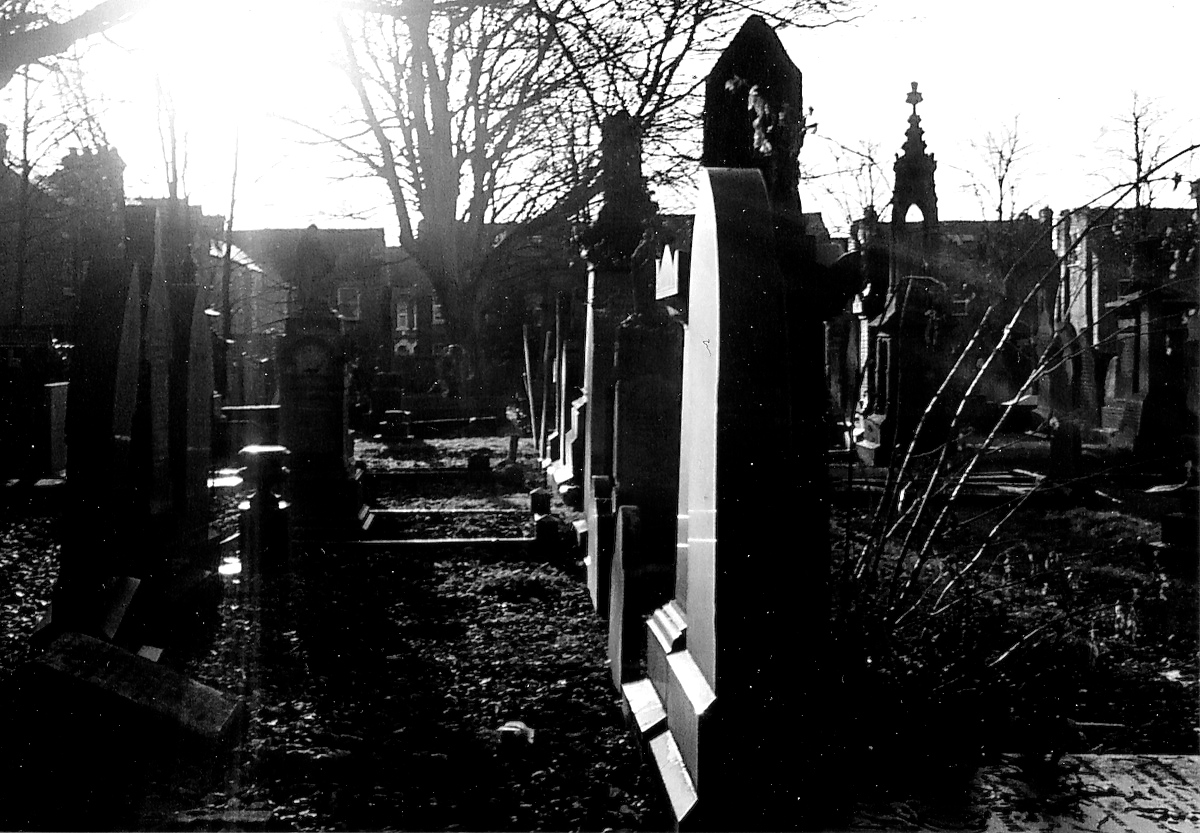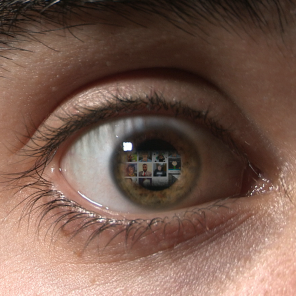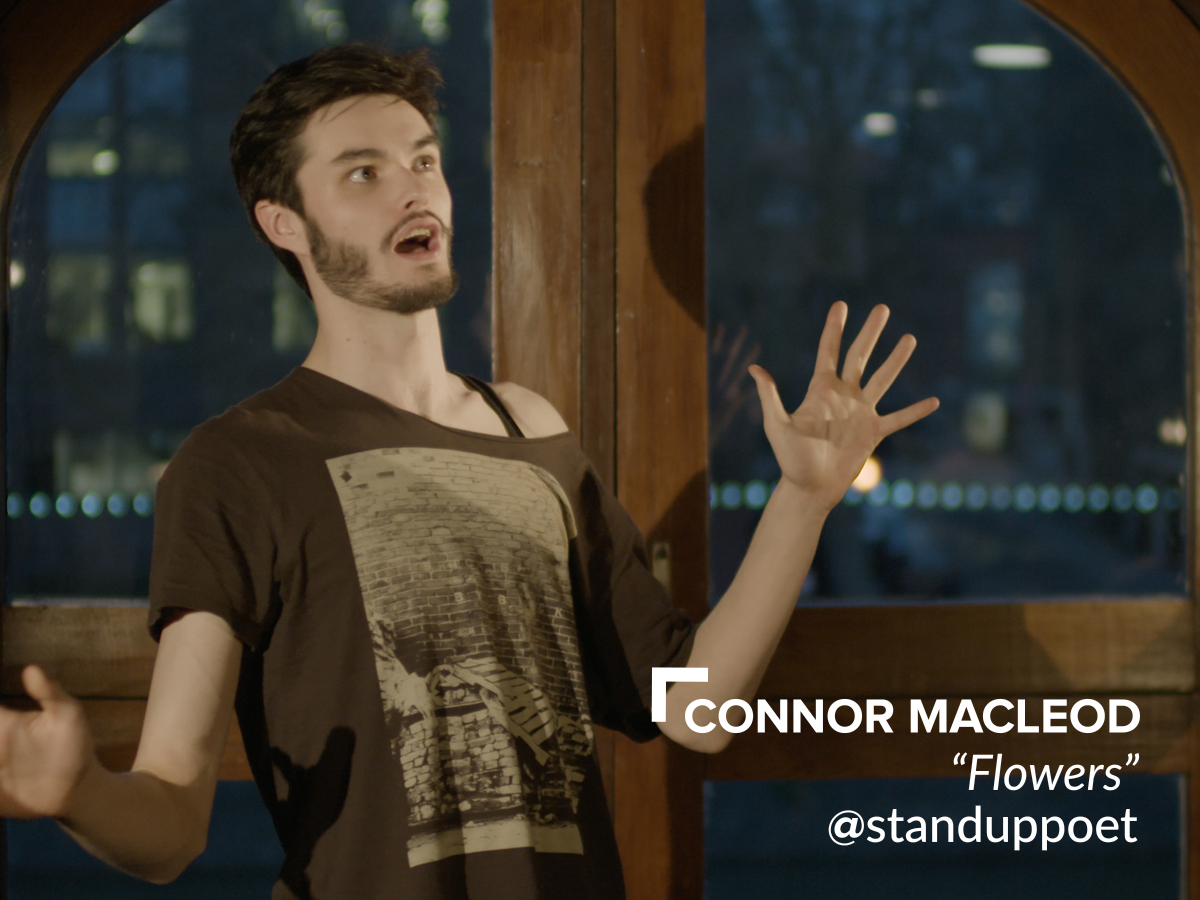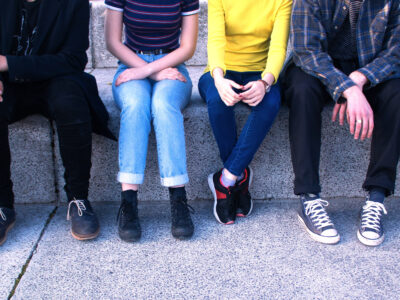Black Photography Commission: Documenting Community
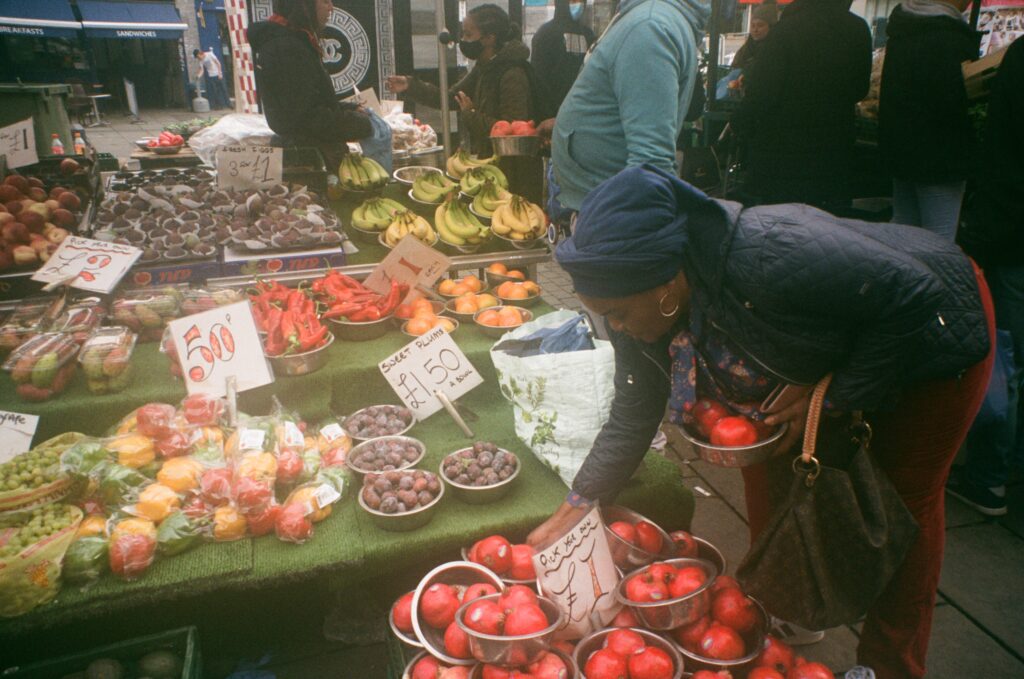
Yewande Adeniran’s work aims to reveal the beauty in the everyday.
For our next photography commission Yewande shares howqphotography reveal the beauty in the everyday.
Tell us about yourself.
I never know what to say for this bit, but I’m 26, a PhD student, lecturer, DJ, writer and I run INTERVENTION, which started here in Bristol. I guess you could say I’m an activist too. I got seriously into photography about ten years ago in college while studying Visual Arts. I originally wanted to be an architect or nuclear physicist but there was something really disconcerting about the soulless new builds popping up around London. I used to walk around and try and find out why I was having these feelings and began speaking to loads of different people. I tend to always have my camera on me, too, so I always asked if I could take a photograph. When I developed the film, I would always have a face to put to the memory. I tend to shoot on black & white 120mm film and develop, process and enlarge it myself. This means I feel more connected to the experience – there’s a lot of patience and love that goes into it. It tends to be a whole emotional experience rather than a quick snap you forget about. Currently, my main focus is on the city and the experiences of Black and People of Colour of all ages.
What are you interested in photographing and why?
I first started taking photographs when I was really little. My mum bought me a disposable camera when we were going abroad and I remember having so much fun taking pictures of random people, the buildings, skylines… pretty much anything that captured my attention. It became another way to remember new experiences and places. At college, I became more interested in the distinction between the digital and the real. What we choose to capture and why? Who we think of as the perfect subject, and how do we position them? I try and take photographs that represent my everyday.
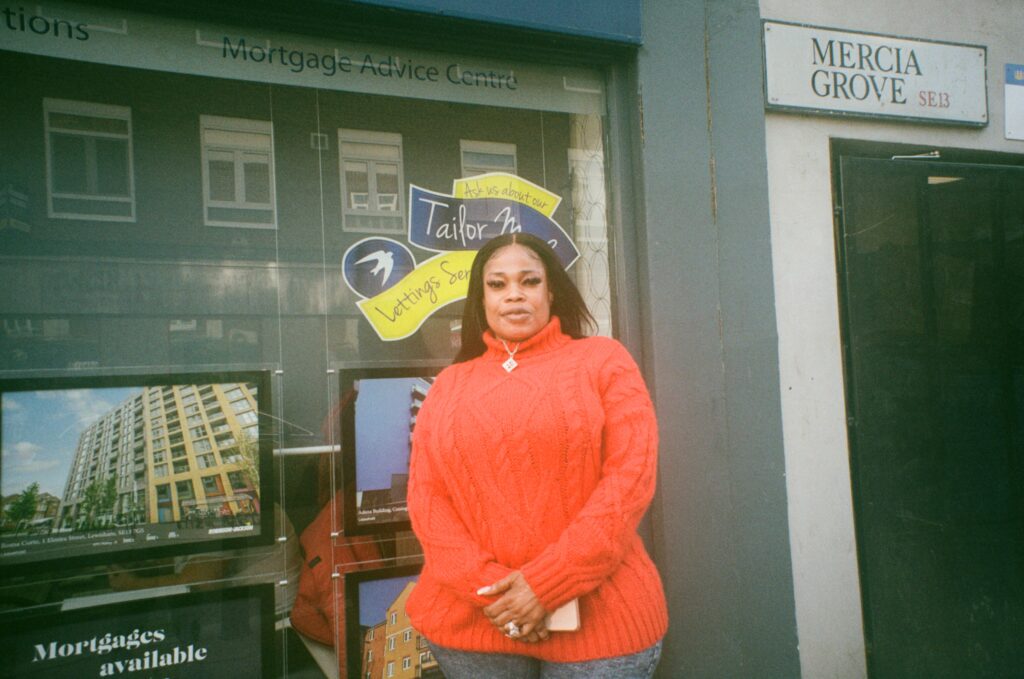
Tell us more about the photos in your series.
I took these photographs in Lewisham in South East London. It’s an area that is rapidly, like most other places nearby, becoming gentrified. I visit London every few months but each time it becomes unrecognisable. The familiar places and faces are replaced but the physical area remains constant. There is an eerie feeling a lot of time walking around. I’ve always been interested in the changing world around me. Being from London, you see both hypercapitalism and a resistance to it by locals that largely goes unrecognised and undocumented.
This series is part of my own personal archive. The hairdressers and the food market are are really captivating spaces to me. I’ve learnt so much about different African and Caribbean cultures from people I’ve met, but also about the intersection of race, class and gender. It’s been a way to remember the present and ensure it lives on beyond the ever-changing landscape.
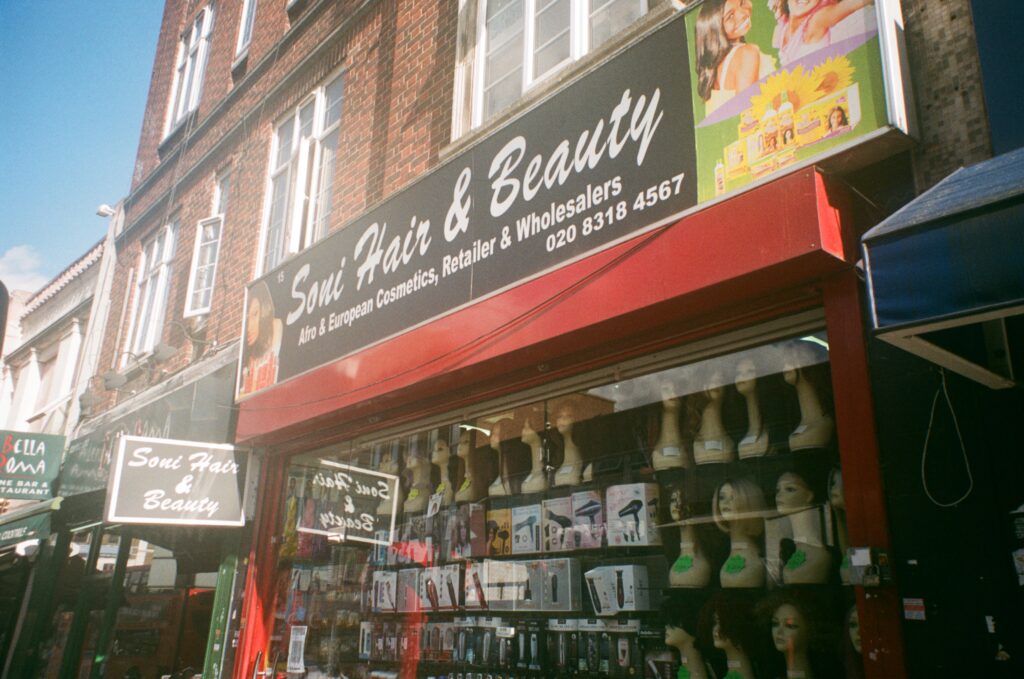
What is your favourite thing to photograph?
Local people going about their day. There’s a part of humanity you tend to uncover. Every photograph has a long and complex history you wouldn’t expected at a first glance. The everyday is really beautiful. There’s something really special about the ordinary. It seems really unspectacular but it’s the realness I love about it. It’s not manipulated – it just exists.
Within the first few minutes, you see a person go from standoffish to relaxed. It’s also a way to connect with people in a city context which I tend to find isolating. Once you open up to people about why you’re photographing, they tend to reveal they have similar feelings. I find this across all age groups. It reminds me we’re all connected in some way.
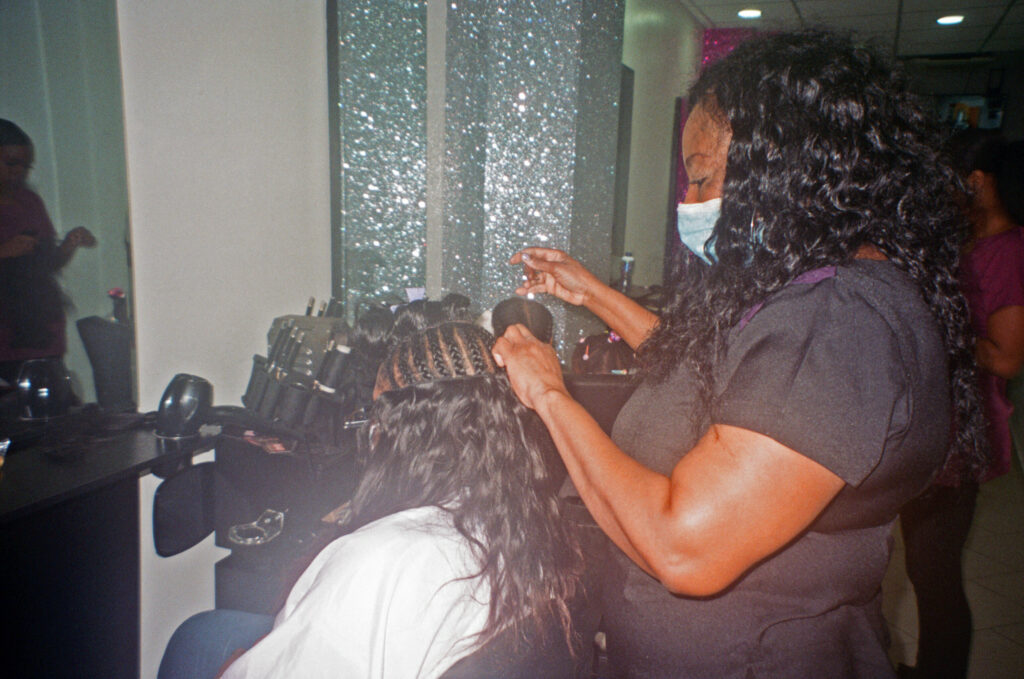
What’s next for you?
I really want to travel to different parts of the Nigerian diaspora and see how our culture is expressed and the similarities we have despite the physical distance. I guess also experimenting more – I’ve been looking into more moving image based projects. I can’t say anything just yet but watch this space!

